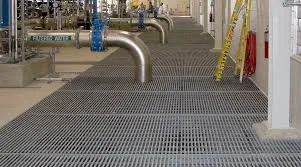
-
 Afrikaans
Afrikaans -
 Albanian
Albanian -
 Amharic
Amharic -
 Arabic
Arabic -
 Armenian
Armenian -
 Azerbaijani
Azerbaijani -
 Basque
Basque -
 Belarusian
Belarusian -
 Bengali
Bengali -
 Bosnian
Bosnian -
 Bulgarian
Bulgarian -
 Catalan
Catalan -
 Cebuano
Cebuano -
 China
China -
 China (Taiwan)
China (Taiwan) -
 Corsican
Corsican -
 Croatian
Croatian -
 Czech
Czech -
 Danish
Danish -
 Dutch
Dutch -
 English
English -
 Esperanto
Esperanto -
 Estonian
Estonian -
 Finnish
Finnish -
 French
French -
 Frisian
Frisian -
 Galician
Galician -
 Georgian
Georgian -
 German
German -
 Greek
Greek -
 Gujarati
Gujarati -
 Haitian Creole
Haitian Creole -
 hausa
hausa -
 hawaiian
hawaiian -
 Hebrew
Hebrew -
 Hindi
Hindi -
 Miao
Miao -
 Hungarian
Hungarian -
 Icelandic
Icelandic -
 igbo
igbo -
 Indonesian
Indonesian -
 irish
irish -
 Italian
Italian -
 Japanese
Japanese -
 Javanese
Javanese -
 Kannada
Kannada -
 kazakh
kazakh -
 Khmer
Khmer -
 Rwandese
Rwandese -
 Korean
Korean -
 Kurdish
Kurdish -
 Kyrgyz
Kyrgyz -
 Lao
Lao -
 Latin
Latin -
 Latvian
Latvian -
 Lithuanian
Lithuanian -
 Luxembourgish
Luxembourgish -
 Macedonian
Macedonian -
 Malgashi
Malgashi -
 Malay
Malay -
 Malayalam
Malayalam -
 Maltese
Maltese -
 Maori
Maori -
 Marathi
Marathi -
 Mongolian
Mongolian -
 Myanmar
Myanmar -
 Nepali
Nepali -
 Norwegian
Norwegian -
 Norwegian
Norwegian -
 Occitan
Occitan -
 Pashto
Pashto -
 Persian
Persian -
 Polish
Polish -
 Portuguese
Portuguese -
 Punjabi
Punjabi -
 Romanian
Romanian -
 Russian
Russian -
 Samoan
Samoan -
 Scottish Gaelic
Scottish Gaelic -
 Serbian
Serbian -
 Sesotho
Sesotho -
 Shona
Shona -
 Sindhi
Sindhi -
 Sinhala
Sinhala -
 Slovak
Slovak -
 Slovenian
Slovenian -
 Somali
Somali -
 Spanish
Spanish -
 Sundanese
Sundanese -
 Swahili
Swahili -
 Swedish
Swedish -
 Tagalog
Tagalog -
 Tajik
Tajik -
 Tamil
Tamil -
 Tatar
Tatar -
 Telugu
Telugu -
 Thai
Thai -
 Turkish
Turkish -
 Turkmen
Turkmen -
 Ukrainian
Ukrainian -
 Urdu
Urdu -
 Uighur
Uighur -
 Uzbek
Uzbek -
 Vietnamese
Vietnamese -
 Welsh
Welsh -
 Bantu
Bantu -
 Yiddish
Yiddish -
 Yoruba
Yoruba -
 Zulu
Zulu
Enhanced Performance with Threaded Carbide Extension Rods for Industrial Applications
Exploring the Significance of Threaded Carbide Extension Rods
Threaded carbide extension rods are vital components in a variety of industrial applications, primarily in fields such as mining, construction, and manufacturing. These rods, made from tungsten carbide—a material renowned for its exceptional hardness and wear resistance—offer numerous advantages that enhance operational efficiency and longevity in demanding environments.
What Are Threaded Carbide Extension Rods?
Threaded carbide extension rods are elongated cylindrical pieces made from tungsten carbide, featuring threaded ends that allow for easy connection to other tools or rods. The construction of these rods not only provides structural integrity and resistance to wear but also ensures that they can withstand high levels of stress and strain during use. Typically, these rods are used in conjunction with drill bits or other tools to extend their reach, enabling operators to access deeper or hard-to-reach areas.
Advantages of Using Tungsten Carbide
The choice of tungsten carbide as the primary material for these extension rods is based on its remarkable properties. Tungsten carbide is about twice as hard as steel, which makes it ideal for applications where abrasion and impact resistance are crucial. This hardness translates to a longer lifespan for the rods compared to those made from softer materials, reducing the need for frequent replacements and lowering overall costs in high-usage scenarios. Moreover, tungsten carbide's high density contributes to its ability to penetrate tough materials effectively.
Enhancing Operational Efficiency
thread carbide extension rods

One of the standout features of threaded carbide extension rods is their ability to improve operational efficiency. By using these rods, equipment operators can increase the reach and performance of their tools without the need for extensive modifications or complete replacements. This is particularly important in industries like mining, where operators need to drill deeper and more accurately. The threaded design permits quick and easy assembly and disassembly, allowing operators to adapt their equipment configurations as needed without wasting time or resources.
Versatility Across Industries
The versatility of threaded carbide extension rods makes them suitable for a range of applications beyond traditional drilling. In the construction industry, for instance, these rods can be used in concrete drilling or for anchoring applications, where high strength and wear resistance are required. Similarly, in the manufacturing sector, they can be utilized for assembly processes involving heavy machinery, where reliability and precision are paramount. The ability to use these rods in various industrial contexts enhances their value and contributes to more streamlined operations.
Maintenance and Longevity
While threaded carbide extension rods are designed for durability, maintenance remains a key aspect of ensuring their longevity. Operators should regularly inspect the rods for signs of wear or damage and utilize appropriate cleaning methods to remove debris and buildup. Proper handling and storage conditions are also essential in maintaining the integrity of the rods. Investing in maintenance can yield significant long-term savings by prolonging the lifespan of these critical components.
Conclusion
In conclusion, threaded carbide extension rods are indispensable tools in a variety of industrial operations. Their exceptional hardness, wear resistance, and design flexibility make them ideal for increasing efficiency in challenging environments. As industries continue to evolve and the demand for high-performance tools rises, the significance of tungsten carbide components will only increase. By understanding the value and application of these extension rods, businesses can make informed decisions that enhance their operational capabilities and ultimately lead to improved productivity and profitability. Investing in quality threaded carbide extension rods is not just a matter of equipment choice; it is a strategic decision that can define the success of industrial endeavors.









